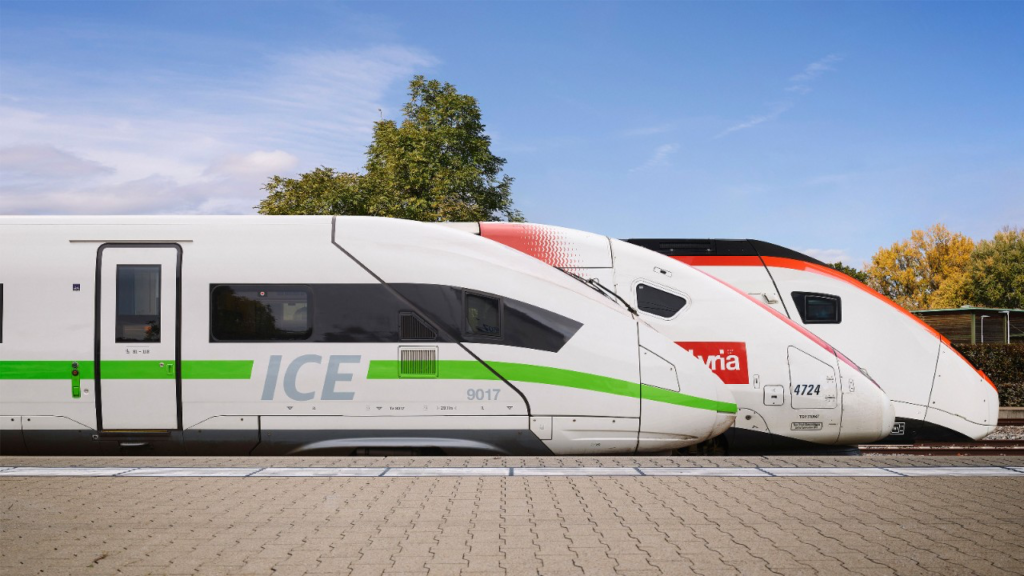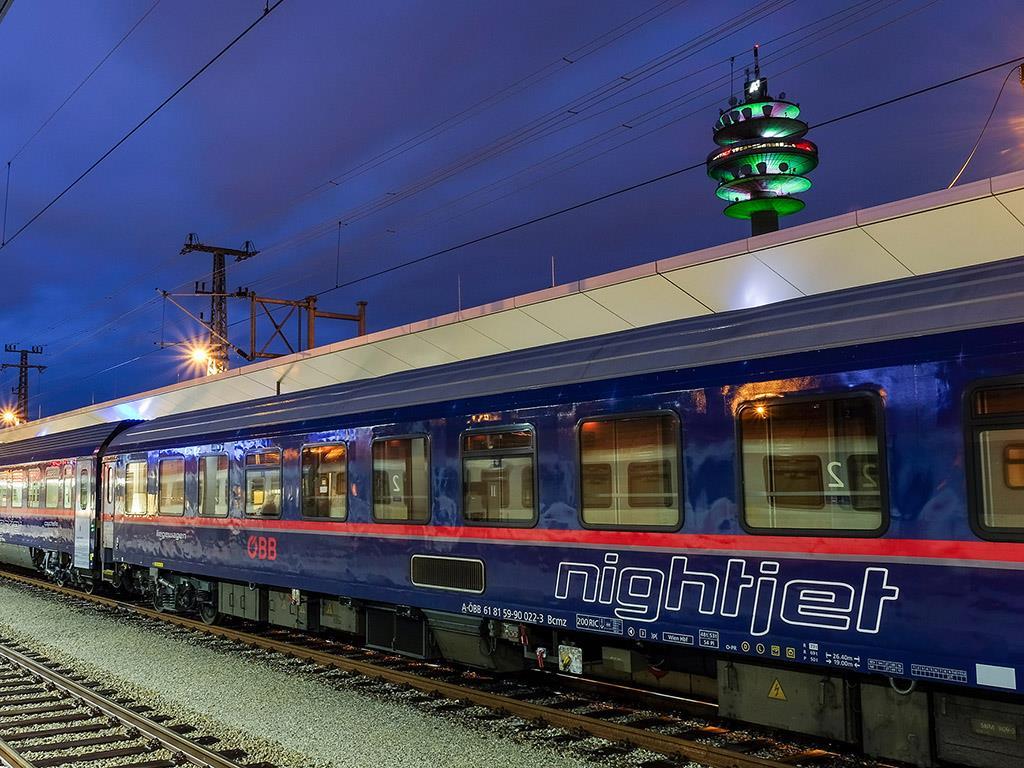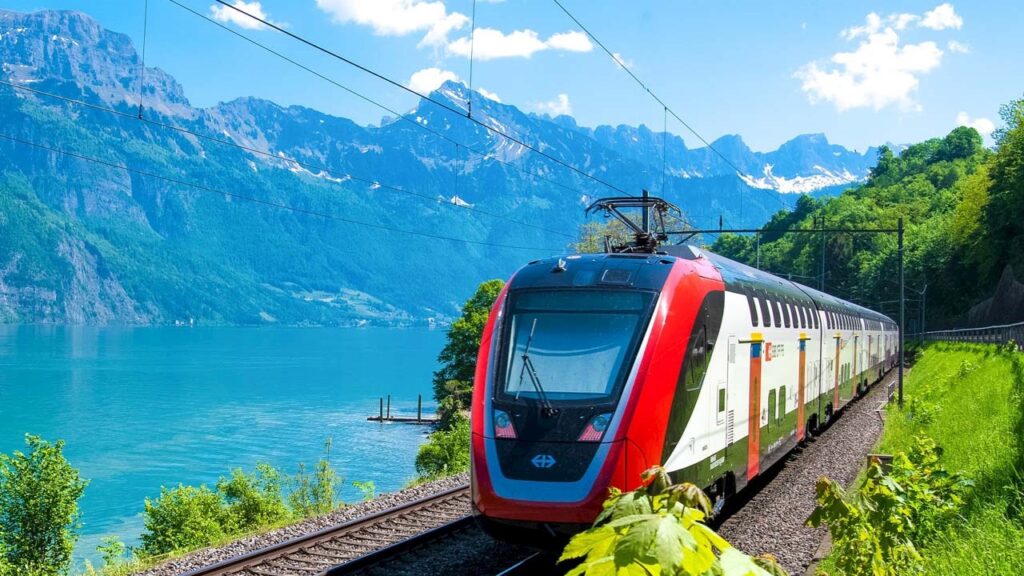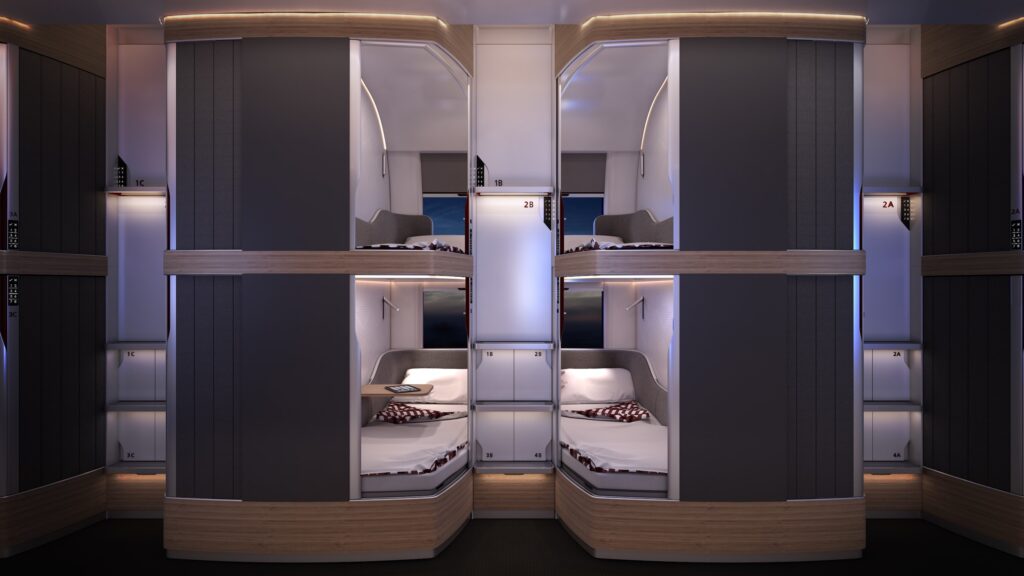SBB is improving its services for travelling with bicycles for the 2021 cycling season. It is taking this step in response to strong demand and to insufficient capacity last summer. On key leisure travel lines (Bern to Brig, Zurich to Chur) SBB is tripling capacity at times of high demand from 21 March. SBB will offer customers with bicycles more reliable journey planning: thanks to reservations, passengers taking along bikes can be sure that they will find space for them on trains. The price of bicycle reservations is reduced from CHF 5 to CHF 2. SBB presented the improved services to cycling, consumer and industry organisations today and outlined future prospects for traveling with bikes.
There has been a sharp increase in demand for travelling with bikes and holidays in Switzerland due to the coronavirus crisis. In some cases this has led to capacity shortages and dissatisfied customers who were unable to travel with their bike on the train they had planned to use. Around 80,000 Bike Day Passes were sold in the peak month of July 2020, for example, which is up by around 45% compared to the previous year. SBB also transported up to 15,000 bikes with self-service loading on the main axes of Zurich to Chur and Bern to Brig.
SBB expects demand for travel with bikes to continue to rise and is responding to this trend. This is why – together with Pro Velo and the Swiss Transport and Environment Association – it engaged in broad-based dialogue with cycling stakeholders as well as consumer and industry organisations on the issue of ‘sustainable travel with bicycles’. The aim is to offer customers reliable journey planning and reservations, to further improve and simplify services and to make them even more customer-friendly. SBB has a duty of responsibility towards all customers and wishes to provide services that meet and take account of the needs of all passengers as far as possible – including, for example, people with disabilities or families.
In view of the forthcoming cycling season, which begins on 21 March, SBB has introduced various changes to make travelling with bikes easier:
SBB is increasing capacity for the self-service loading of bicycles at times of high demand on the key leisure travel lines, tripling capacity compared to the current levels where possible. These routes include Bern to Brig and Zurich to Chur. Additional capacity will also be provided on routes to Ticino, Interlaken and the southern foot of the Jura. Passengers will be assisted with the loading of bicycles by SBB staff on these lines where possible.
In order to expand capacity medium and long-term, SBB is currently assessing which technical measures can be implemented long-term to create additional bicycle spaces on various types of train. Only minor modifications to rolling stock are possible in the short term.
Customers with bicycles need to be able to plan their journey reliably and safely. SBB makes this possible on all Swiss InterCity trains with a reservation costing CHF 2. Passengers who made a reservation can be certain that they will find space for their bike on the trains. Trains are labelled with the well-known bicycle symbol in the online timetable. Bikes can only be transported using self-service loading on trains labelled with this symbol if a reservation has been made and a valid bike ticket is presented. Reservations can be made up until shortly before departure in the SBB Mobile app. They can also be purchased at the counter or several days in advance via the SBB Contact Center
(tel. 0848 44 66 88)
The price for reservations will be reduced from CHF 5 to CHF 2 for a continuous connection – for example for a route with more than one section. International trains within Switzerland can now also be used for bike transport with a reservation, but prices and booking options may differ. Bikes can be transported with a valid bicycle ticket but without a reservation on regional services (R, S, RE trains) as well as on InterRegio trains (IR).





